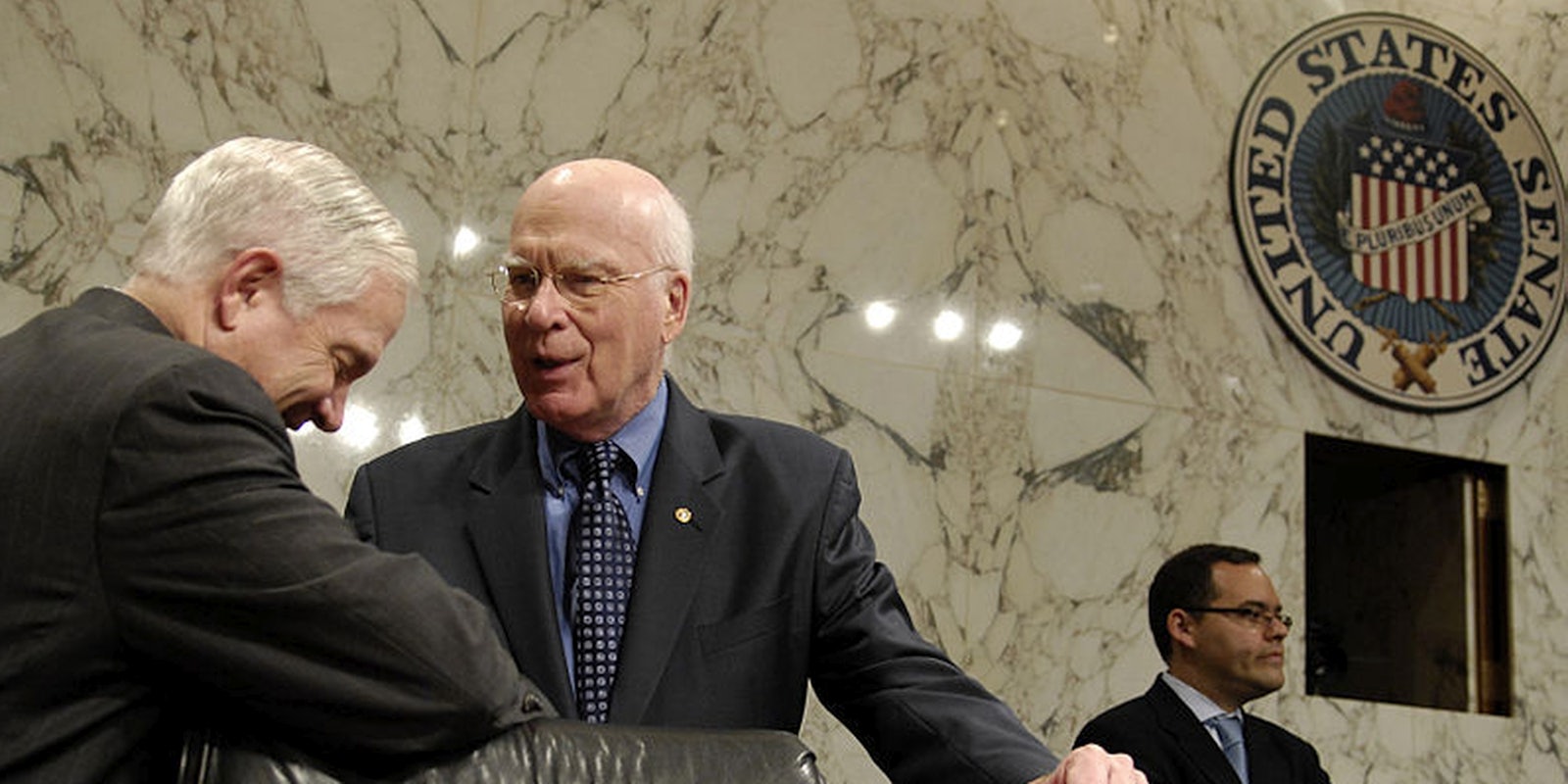While the world waits to find out where Edward Snowden, the National Security Administration (NSA) contractor who leaked information about an Internet surveillance program earlier this month, is going to find asylum, senators in Washington are looking at ways to improve personal privacy online.
On Monday, Vermont Sen. Patrick Leahy, chairman of the Senate Judiciary Committee, introduced the “FISA Accountability and Privacy Protection Act of 2013.” The bill is meant to strengthen privacy protections, accountability, and oversight related to domestic surveillance under the Patriot Act, which was enacted shortly after the attacks on Sept.r 11. Politico called it “the most sweeping bill yet” to deal with the fall out of NSA’s PRISM program.
On June 6, the Guardian and the Washington Post published a story about NSA’s secret program to monitor people’s phone records and Internet usage. The program was quickly deemed an invasion of privacy, but the government responded that it was necessary project.
Leahy’s 72-page bill is the biggest piece of legislation yet to deal with the issue of privacy online, but it is not the first. The bill also has bipartisan support from Sens. Ron Wyden (D-Oregon), Mike Lee (R-Utah), Richard Blumenthal (D-Connecticut), Mark Udall (D-Colorado), and Jon Tester (D-Montana). The current bill draws from legislation introduced earlier this month and tries to put more restrictions on what the NSA can do. It would also require a report be made public on government surveillance and its effect on people’s privacy.
“We must find the right balance between protecting our nation and protecting the civil liberties that make America the greatest country in the world,” said Montana Sen. Tester earlier this month.
Politico notes that the legislation introduced by Leahy is more likely to be successful because of the Vermont senator’s place on the Judiciary Committee. However, Majority Leader Harry Reid said any legislation will have to go through the normal committee process.
Leahy has pushed for more oversight of America’s security programs before. In July 2012, he introduced legislation that would have put more restrictions on the NSA, but it ultimately failed.
Photo via Wikimedia Commons


